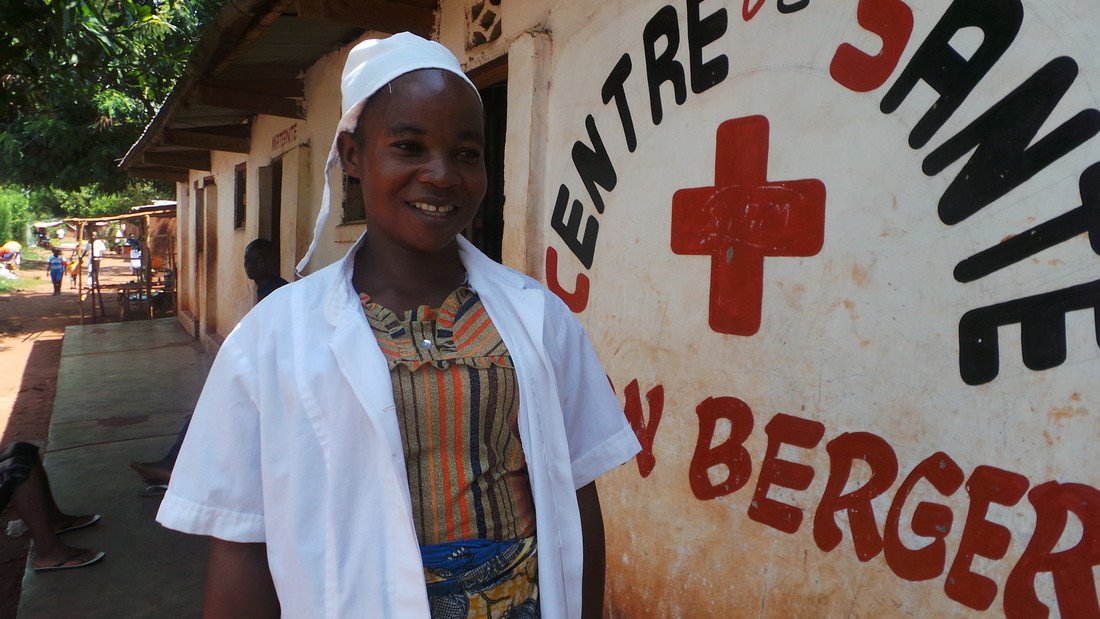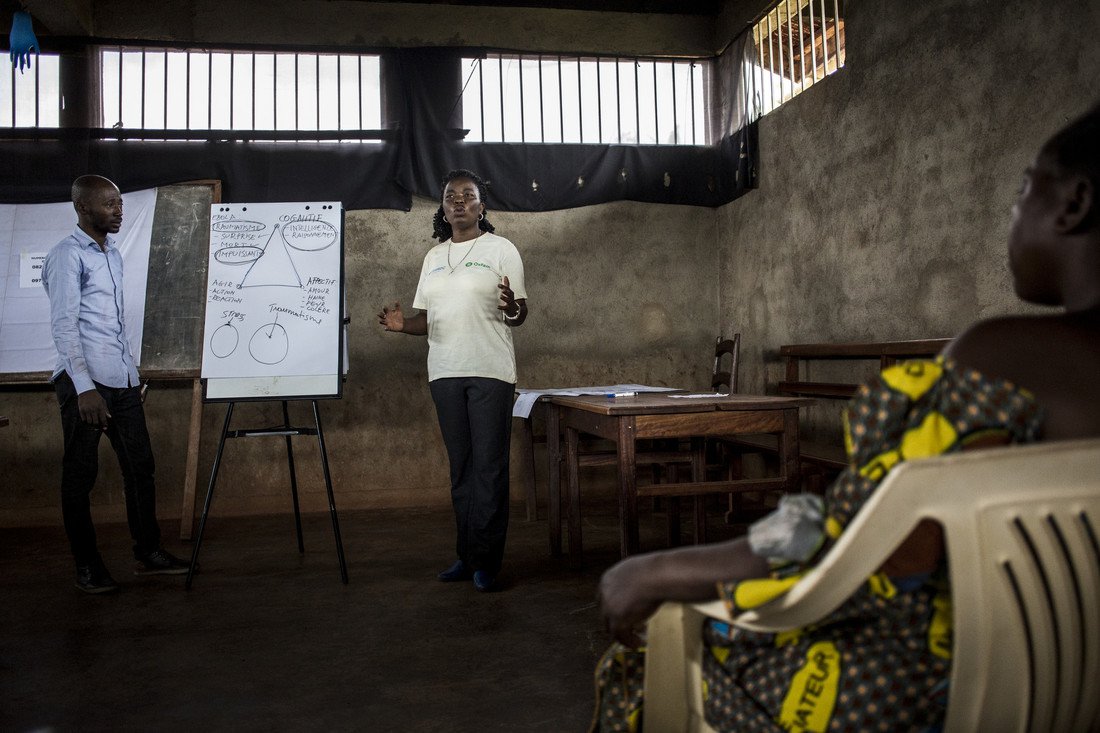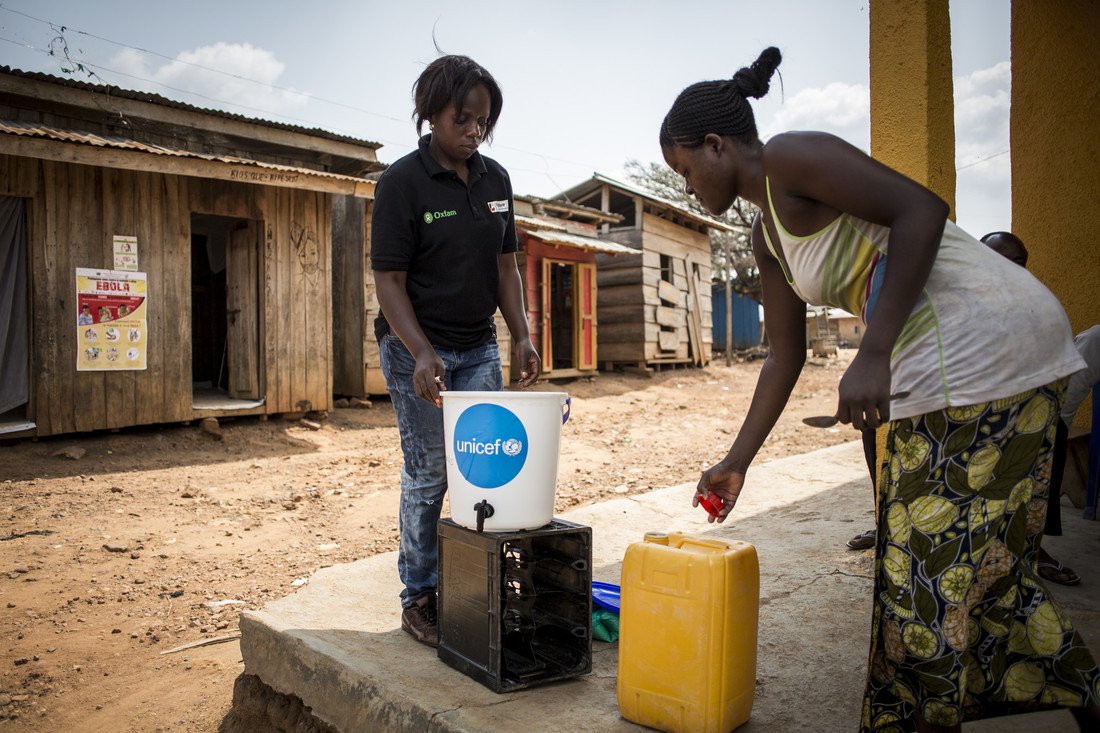On World Humanitarian Day, we recognize the selflessness of women humanitarians saving lives in the Democratic Republic of Congo
In a humanitarian emergency, women are often the first to respond and the last to leave. They are our unsung heroes, putting the health and safety of their communities above their own.
That’s why this year for World Humanitarian Day, the international aid community is honoring women humanitarians. In particular, we are highlighting the efforts of women in the Democratic Republic of Congo (DRC), who are saving lives at risk to their own.
One year after the current Ebola outbreak was declared in the DRC, the number of people contracting the virus is continuing to rise, and the outbreak has already surpassed 2000 cases. Working conditions are only getting more dangerous as attacks on health workers and facilities are increasing.
Despite the challenges, these brave women are unwavering in their service to their communities.
Solange

“My husband works at the Kamako border crossing. He called me every night so that I could go and get some of the deportees who had no money to pay for a taxi bike or any place to go. Feeding everyone is not easy.”
Solange has helped to house as many as 40 people at a time in this health center, including pregnant women, some of whom have given birth and were forced to share a bed with other pregnant women or nursing mothers.
She fears that the need for medication far outweighs the supply, and that the health center will close soon.
“Some suffer from diarrhea, amoebiasis [or amoebic dysentery], acute respiratory infections, malaria, or filariasis [a parasitic disease]. We are asking the government to help these people who have been turned away, to bring us drugs and medical supplies to treat these patients."
Henriette

Bora

Louise

“At first we thought Ebola was witchcraft. We thought it was a spell cast on women because they are the one who are most affected. Many women have died here in Mangina, at least 20 women, they are almost all from the same family. In our community, it is the women who tend to the sick people, they also clean them, and wash the clothes."
Louise reports that at the start of the outbreak, the community decided to isolate dead bodies, which wasn’t any easy decision as there is no mortuary in Mangina, and typically, families stay with bodies for several days.
“Since the Ebola outbreak many people have died, others are in the hospital. Many children are without their mothers. These children live with difficulty and the community has few means to help them.”
She sees education as a way out. “We must start by training ourselves, the leaders, in awareness so that we can raise awareness in return. We are well placed to convey the information to the communities because we know them and they know us.”
How can you support humanitarian workers like Solange, Henriette, Bora, and Louise?
Oxfam has been working in DRC for nearly 60 years. We are working directly with community leaders on public health promotion and providing safe, clean water to affected areas. So far, our Ebola response has reached more than 600,000 people.
